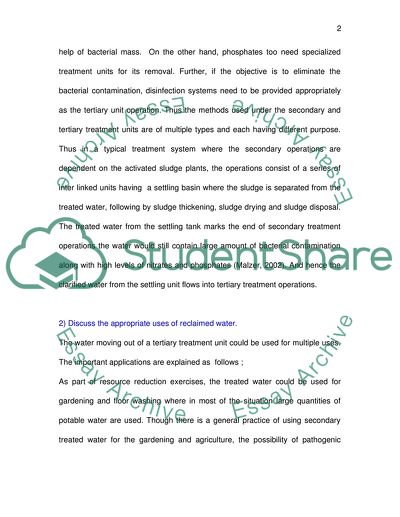Water Quality; Wastewater Management Essay Example | Topics and Well Written Essays - 500 words. Retrieved from https://studentshare.org/miscellaneous/1558619-water-quality-wastewater-management
Water Quality; Wastewater Management Essay Example | Topics and Well Written Essays - 500 Words. https://studentshare.org/miscellaneous/1558619-water-quality-wastewater-management.


